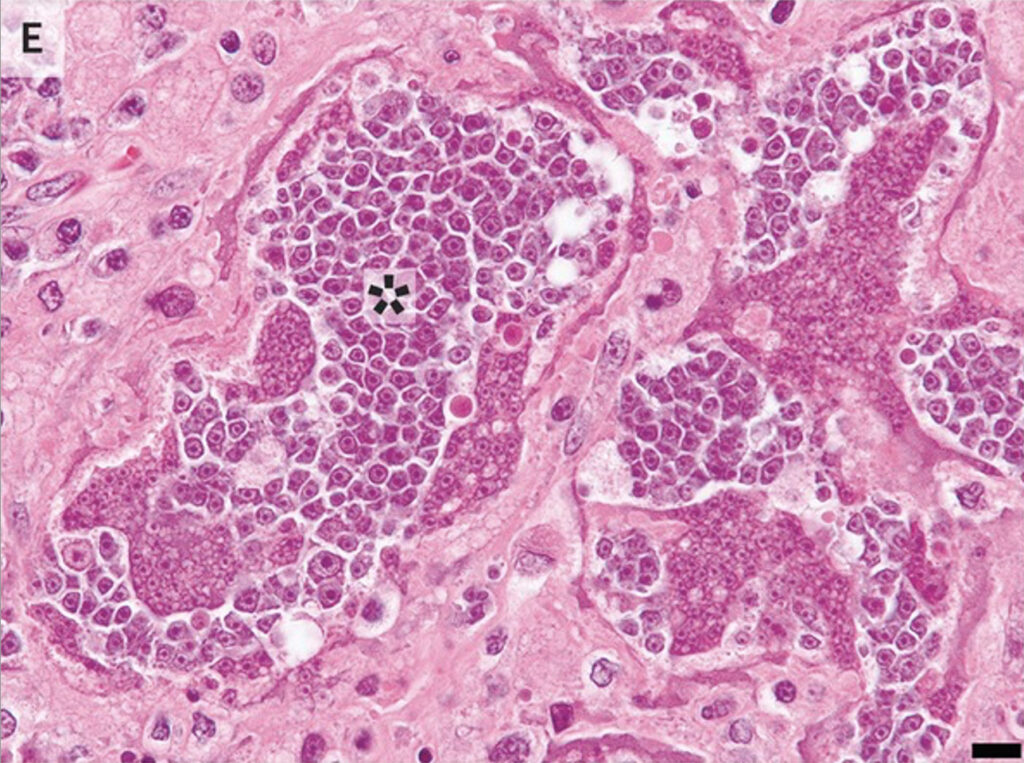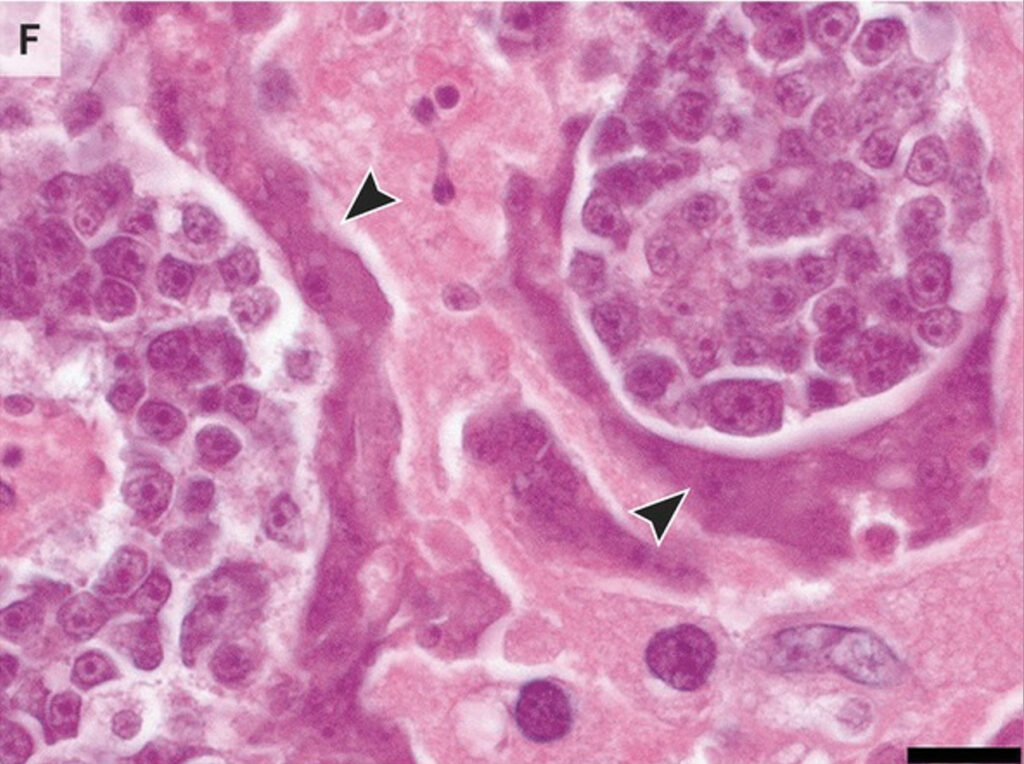I know this is a veterinary blog, but this pathology is just too cool to pass up! Today’s path rounds are on 𝐩𝐚𝐫𝐚𝐬𝐢𝐭𝐞-𝐝𝐞𝐫𝐢𝐯𝐞𝐝 𝐜𝐚𝐧𝐜𝐞𝐫!
𝐖𝐡𝐚𝐭 𝐢𝐬 𝐢𝐭?
𝐏𝐚𝐫𝐚𝐬𝐢𝐭𝐞-𝐝𝐞𝐫𝐢𝐯𝐞𝐝 𝐜𝐚𝐧𝐜𝐞𝐫 is exactly as it sounds, a cancer that arose from a parasite. There has only ever been 𝐨𝐧𝐞 reported case of this, currently making it the rarest type of cancer discovered! Wild.
𝐖𝐡𝐨 𝐠𝐞𝐭𝐬 𝐢𝐭?
So far, the only case of this disease was in a human.
𝐖𝐡𝐚𝐭 𝐡𝐚𝐩𝐩𝐞𝐧𝐞𝐝?
In 2013, a 41-year-old man in Colombia developed fatigue, fever, cough and weight loss. He had previously been diagnosed with 𝐡𝐮𝐦𝐚𝐧 𝐢𝐦𝐦𝐮𝐧𝐨𝐝𝐞𝐟𝐢𝐜𝐢𝐞𝐧𝐜𝐲 𝐯𝐢𝐫𝐮𝐬 (HIV), which attacks and essentially destroys the immune system. Unfortunately, his HIV was not responding to typical treatment.
When he went to the doctor, an examination of his stool revealed infection with 𝐇𝐲𝐦𝐞𝐧𝐨𝐥𝐞𝐩𝐢𝐬 𝐧𝐚𝐧𝐚, otherwise known as the 𝐝𝐰𝐚𝐫𝐟 𝐭𝐚𝐩𝐞𝐰𝐨𝐫𝐦. This tapeworm typically resides in the intestine of humans, and are able to reproduce successfully without having to leave their host. This means that this tapeworm can reach very high numbers in a very short period of time!
Further investigation into this man’s condition revealed that he had several nodules throughout his lungs and liver, and several of his lymph nodes were enlarged. This is a fairly common presentation of 𝐦𝐞𝐭𝐚𝐬𝐭𝐚𝐭𝐢𝐜 𝐜𝐚𝐧𝐜𝐞𝐫 (cancer at multiple sites). To help diagnose the type of cancer they were dealing with, several 𝐛𝐢𝐨𝐩𝐬𝐢𝐞𝐬 (samples of tissue) were taken from the enlarged lymph nodes.
What they found was quite unusual! The cells within the lymph nodes had many features of cancer cells, including 𝐚𝐭𝐲𝐩𝐢𝐚 (strange shape) and 𝐩𝐥𝐞𝐨𝐦𝐨𝐫𝐩𝐡𝐢𝐬𝐦 (wide variety of shapes). However, the cells themselves were way too small to be human cells. Pathologists investigating the case wondered if these cells were some type of mold or 𝐩𝐫𝐨𝐭𝐨𝐳𝐨𝐚𝐧 (unicellular parasite), but none of the tests for these organisms came back positive. Finally, testing revealed that these cells were a match to the dwarf tapeworm.
Investigators postulated that the tapeworm was able to escape the intestine and enter the man’s bloodstream due to his 𝐢𝐦𝐦𝐮𝐧𝐨𝐬𝐮𝐩𝐩𝐫𝐞𝐬𝐬𝐢𝐨𝐧 from HIV. Because his immune system was severely weakened, there was nothing to keep the parasite at bay if it did manage to reach a blood vessel. From there, the parasites spread to multiple organs. Since they aren’t meant to be outside of the intestines, it is thought that the parasite’s cells responded abnormally, developing cancer. Thus, the cancer that this man was suffering from was not human-origin at all, but instead a devastating consequence of two unrelated diseases in the same patient. Crazy! Thankfully, this combination of events is unlikely to occur again, due to more accessible treatments for both of these conditions.





𝐏𝐡𝐨𝐭𝐨𝐬
1) A Hymenolepis parasite.
2) A CT scan showing nodules within the man’s lungs.
3) The enlarged lymph nodes with several nodules.
4-5) The unusually small cancer cells within a lymph node!
𝐒𝐨𝐮𝐫𝐜𝐞𝐬
Muehlenbachs A, Bhatnagar J, Agudelo CA et al. Malignant transformation of Hymenolepis nana in a human host. New England Journal of Medicine 2015; 373:1845-1852.
Photo 1 © Wikimedia Commons contributor Ironmrazik licensed under CC Share-Alike 4.0 International.
Photos 2-5 © Muehlenbachs et al. 2015.




